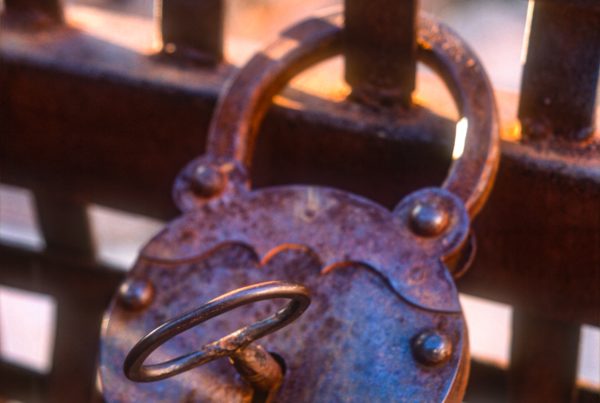The chapter is biographically rich, with Joseph’s excitement easily felt. One example is verse 14, where the text mentions being quickly taken out of the pit, with a special mention made about his hygiene, needing not just bathing but shaving, with great emphasis on the new clothes given to him, things he always remembered.
13 Years
Joseph spent two years in Potipher’s prison, but verse 46 completes the timeline by saying thirteen ago his brothers betrayed him.
Pharoah’s Trouble
The same dream is enthusiastically recounted over and over again.
Pharoah dreams about 7 fat cows, and 7 thick stalks of grain. In the same dream there suddenly appears the same number of thin and ugly cows coming up and eating the fat ones, only one would never know. The dream is doubled in the same exact way, with 7 plump and full-grain stalks eaten by 7 withered ones.
Even in the modern world political leaders look to superstition to discern spiritual truth, all the more so during the days of Pharoah, where great questions arose as to how to pacify the gods.
The Chief Cupbearer
The cupbearer speaks directly to Pharoah whose main task is quality control of Pharoah’s food.
He mentions in an artful way, I remember my offenses, and also says, when Pharoah was angry with his servants, then mentions doing time with the baker in Poipher’s prison, and there meeting a dream interpreter.
This of course comes after all others had struck out in attempting to do so.
It Is Not Me
With evangelistic boldness, Joseph preaches to Pharoah a simple gospel truth, the power is not me, but with God.
Joseph hears the dreams and quickly responds, Pharoah has just received a message from God – 7 years of plenty are decreed followed by 7 years of want. The young man does not stutter, the matter is fixed by God and will shortly come about.
Select
With prophetic boldness, Joseph inserts himself as the answer to Pharoah’s problem. Pharoah needs a brilliant and tough administrator and must appoint the right person who can prepare for this global disaster. Joseph quickly suggests an annual tax of 20% (1/5), the appointment of many overseers, and the proper storing of food in the cities. With no refrigeration that meant making beef jerky, and putting grain in new silos. Joseph is now wise, unlike 13 years earlier when he shared how his God dreams meant his family would bow down to him, Joseph now shares how all this must be done under Pharoah.
A Man Like This
Pharoah speaks logically, Joseph has the Spirit of God, and there is no one like him. He openly and brazenly mentions Joseph’s wisdom and discernment. In an absolutely stunning move, Pharoah does not call out to any of his other staff, he immediately looks upon Joseph, the man who 24 hours ago was a prisoner living in a pit, as the one chosen by God to save the world.
Pharoah acts with urgency, his signet ring, royal garments, and second chariot now belong to Joseph, and now has authority above everyone save for Pharoah. A parade is mandated with the chariots going out and announcing to all, bow the knee to Joseph.
Joseph the Egyptian
Joseph was not just a slave, but an immigrant, a worshiper of a God claiming to be above all Egyptian gods. In verse 28 Joseph uses the name Elohim, and Pharoah knew exactly what it meant.
In saying I am Pharoah, he is not trying to pronounce himself as deity, but as a wise king. Joseph and the nation’s success depended upon Joseph obtaining an Egyptian passport, so certain steps were needed.
Under ordinary circumstances, Joseph would be made a gelding and made to live the life of a slave, but Pharoah granted to Joseph manhood and freedom and gave him a wife, Asenath, the daughter of the Priest of On, which is a city, and not a deity. His new Egyptian name is the subject of much debate, nobody knows exactly what it means, and it’s possible Pharoah made it up on the spot, and nobody was going to tell him he was wrong. The name is meant to be highly honorable, with some Egyptian scholars thinking the name means God speaks, He lives.
Happiness
Plenty of questions arise regarding Asenath spirituality. The City of On worshipped the sun god, but Joseph is one of the few in scripture who was without compromise. It’s fair to say she converted and chose to follow and love him and the Lord.
Their two sons are named after Joseph’s deep and raw emotions about his journey to the top. Manasseh means God released Joseph from the pain of his family of origin, this is a bold statement from a man who knows about honor and respect. Ephraim means God made me fruitful. It’s possible Joseph simply added on his own meaning in the naming of his sons, as a testimony to God.
The joy and sorrow of Pharoah’s dreams came true, and now a terror is upon them.





